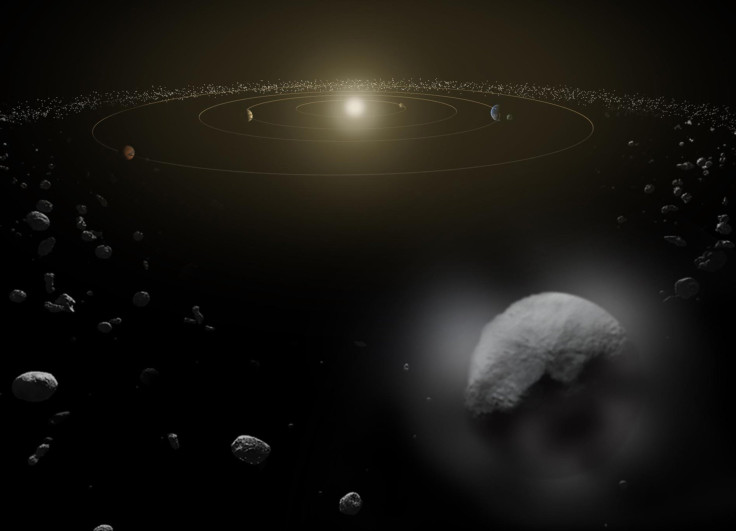Water On Earth ‘Predates’ Sun And Could Signal Life On Other Planets

At least some of Earth’s water is older than the solar system, even the sun itself, which could mean that other solar systems had water in the beginning, too, according to a study published Thursday in the journal Science. The research suggests the ingredients for water were around before the protoplanetary disk of condensed gas that was the early stage of our solar system gave birth to the planets around 4.6 billion years ago.
"The implication of these findings is that some of the solar system's water must have been inherited from the sun's birth environment," Lauren Ilsedore Cleeves, a doctoral student at the University of Michigan and lead author of the study, said in a statement. "If our solar system's formation was typical, this implies that water is a common ingredient during the formation of all planetary systems."
The part of the protoplanetary disk that formed the Earth was too dense for radiation from space to enter. Without that energy source, water could not have formed, researchers from the University of Michigan and the Max Planck Institute for Radio Astronomy in Germany have found.

The clue came from a tiny atom of the hydrogen isotope called deuterium. One in every 3,000 water molecules on Earth has a deuterium atom in place of a standard hydrogen one. Deuterium is also known as “heavy hydrogen” because of its extra neutron. For hydrogen and deuterium in Earth’s ocean water, as well as in meteorite samples and comets, to exist in their current ratios, at least some of the water would have had to form before the sun, researchers concluded. In other words, conditions in the early solar system would have made water formation impossible.
“The finding … makes it quite hard for these regions in the disk to synthesize any new molecules,” Cleeves told Discovery. “This was an ‘aha’ moment for us – without any new water creation, the only place these ices could have come from was the chemically rich interstellar gas out of which the solar system formed originally.” They estimate that primordial water makes up as much as 30 to 50 percent of Earth’s water, according to the Los Angeles Times.
Cleeves said it was “remarkable” that these ices survived the formation of the solar system. Researchers suggest this could be the case for other solar systems as well, meaning conditions may be ripe for life beyond our planet.
Scientists have long attempted to explain the origin of water on our planet. The most widely accepted theory is that it came from the interstellar molecular cloud of gas that partially collapsed and condensed into the sun, planets and moons, a process that began 4.6 billion years ago. Another idea is that water on our planet – and locked in Mars’ ice caps and on the Moon – came from meteorites that originated from near Jupiter. However, water in our solar system may have formed well before that, the new research suggests.
© Copyright IBTimes 2025. All rights reserved.






















